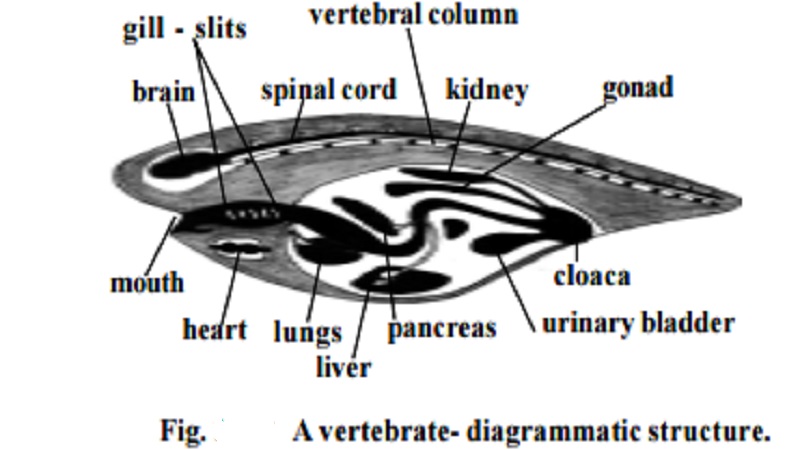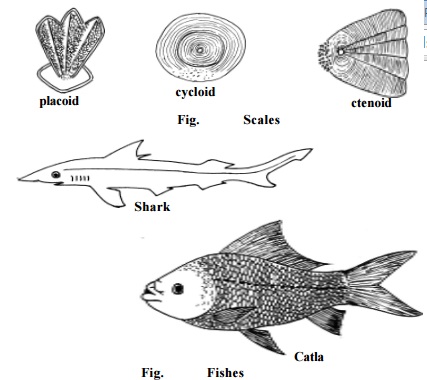Chapter: BIOLOGY (ZOOLOGY) Standard XI first year 11th text book Assignment topics question and answer Explanation Definition
Sub phylum : Vertebrata (Craniata) and Classification of Vertebrata - Class : Pisces and Tetrapoda

Sub phylum : Vertebrata (Craniata) and Classification of Vertebrata - Class : Pisces and Tetrapoda
Sub phylum : Vertebrata (Craniata)
This group is characterized by the presence of brain case or cranium and a vertebral column which forms the chief skeletal axis of the body.
The notochord is an embryonic structure. It is replaced in the adult stage by a cartilaginous or bony vertebral column. The body is covered with an integument having an outer epidermis and an inner dermis. The skin has many modifications such as glands, scales, feathers, claws horns and hairs.
The digestive system is ventral to the vertebral column. It is provided with a large liver and pancreas. The circulatory system consists of the ven-tral, chamberd heart. The circulatory system is of a closed type with arteries, veins and capillaries. The blood plasma contains red and white blood cor-puscles. Gill slits are limited in number (usually 5 pairs). There are two pairs of appendages. The anterior part of the nerve cord becomes differentiated into brain and spinal cord. The special organs of sense like the nose, eyes and ears are closely connected with the brain. Urinary and genital systems are closely connected to form an urinogenital system.
The sub phylum vertebrata may be classified into two groups
(i) Pisces and (ii). Tetrapoda.
Class : Pisces

Fishes are poikilothermic, aquatic vertebrates with jaws. The body is streamlined. It is differentiated into head, trunk and tail. Between head and trunk, the neck is absent. Locomotion is effected by paired and median fins.
The body has a covering of scales. They are of various types like placoid, cycloid, ctenoid and ganoid scales. The body muscles are arranged into segments called myotomes.
The Alimentary canal consists of a definite stomach and pancreas and terminates into cloaca or anus. Respiration is performed by gills. Gill slits are 5-7 pairs. They may be naked or covered by an operculum. The heart is two chambered (an auricle and a ventricle).
Sinus venosus and renal portal system are present. The red blood corpuscles are nucleated. The functional kidney of the adult is of meso-nephric type. The external nostrils do not communicate with the buccal cavity. Lateral line sense organs are well developed. Sexes are separate. Fertilization is either internal or external . Examples: Shark, Catla.
Tetrapoda
The vertebrates with two pairs of limbs adapted for locomotion on land are known as tetrapods. The limbs are of pentadactyl type. The tetra-pods are identified by a cornified outer layer of skin and nasal passages communicating with mouth cavity and lungs. The super class Tetrapoda is divided into four classes namely. Amphibia, Reptilia, Aves and Mammalia.
Related Topics